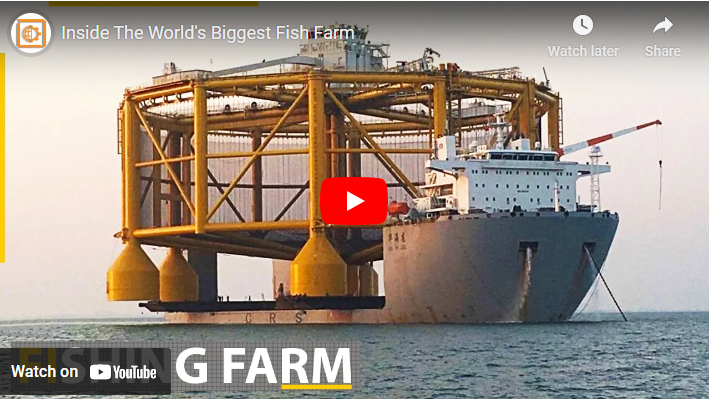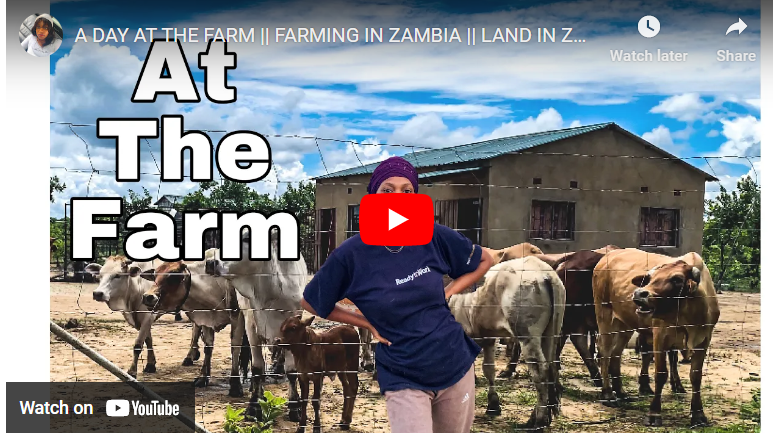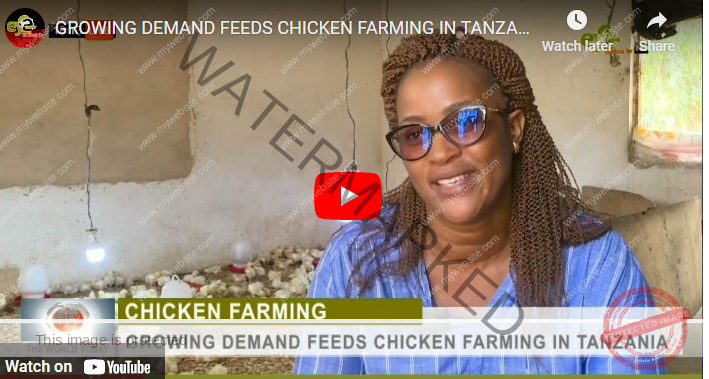Agriculture has been a crucial aspect of Europe’s economy and history for centuries. With vast expanses of fertile land and a diverse range of climates, the continent has become a hub for food production and exportation.
Among the biggest farming countries in Europe are Russia, France, Ukraine, Spain, Sweden, Germany, Poland, Finland, Italy, Romania, the United Kingdom, and Greece.
These nations not only contribute significantly to the continent’s food supply but also serve as leading players in the global food market. Their agricultural practices have evolved with time, incorporating modern technology and sustainable techniques, making them models for the rest of the world.
This article will delve into the 12 biggest farming countries in Europe and explore what makes them stand out in this vital sector.
12 Biggest Farming Countries In Europe
Europe has a rich agricultural landscape that reflects its unique cultural and environmental diversity. Almost all of the country in Europe engage in farming activities be it crop production or animal production.
Read Also: 12 Biggest Farming Counties UK
To explore which countries are leading the way in terms of farming production and land use, we will delve into the 12 biggest farming countries in Europe and discover what makes them stand out in the world of agriculture.
Write on each of the countries below relating to the 12 biggest farming countries in the world. include information on agricultural output, crop production, and livestock farming.
#1. Russia
Russia is the largest country in Europe and also the biggest farming country in the continent. The country’s agricultural sector contributes significantly to its economy, employing around 9.5% of the country’s workforce.
Read Also: 12 Biggest Agricultural Show In UK
The main agricultural products in Russia include grains, potatoes, sugar beets, and sunflower seeds.
Russia is also the world’s largest producer of wheat, with a significant share of its output being exported to other countries.
Livestock farming is also a significant part of Russia’s agriculture, with the country being the world’s largest producer of reindeer meat and caviar.
Despite its vast agricultural potential, Russia faces several challenges in the sector, including low productivity, a lack of infrastructure, and unfavorable climatic conditions in some regions.
Read Also: Top 10 Biggest Farms In The World
#2. France
France is another significant agricultural producer in Europe, with a long-standing reputation for high-quality produce.
The country’s diverse landscape and favorable climate make it suitable for a wide range of agricultural activities, including crop production and livestock farming.
France is the European Union’s largest agricultural producer and exporter, and it accounts for a significant share of global wine production.
The country’s main crops include wheat, corn, and barley, while its livestock sector is dominated by dairy and beef cattle farming.
Read Also: Top 8 Biggest Agricultural Companies In USA
France has made significant strides towards sustainable farming practices, with organic farming accounting for around 10% of its total agricultural land area.
However, the country’s agriculture sector is also facing several challenges, including declining rural populations and the need to adopt more environmentally friendly practices.
#3. Ukraine
Ukraine is the third-largest farming country in Europe and one of the world’s leading agricultural producers.
The country’s vast fertile lands make it a significant producer of crops such as wheat, corn, barley, and sunflower seeds.
Ukraine is also a leading producer of sugar beets and rapeseed, with a growing export market for these products.
Livestock farming is also a significant contributor to the country’s agricultural sector, with pig and cattle farming being the dominant types.
Ukraine has faced challenges in its agricultural sector, including political instability and land reform issues, but the country remains an essential player in the global agricultural market.
Read Also: 12 Biggest Farming Countries in the World
#4. Spain
Spain is a major agricultural producer in Europe, with a diverse range of agricultural activities due to its varied climate and terrain.
The country is a significant producer of crops such as olives, citrus fruits, grapes, and tomatoes, with olive oil and wine being significant exports.
Spain is also a major producer of pork, beef, and poultry, with livestock farming being a crucial component of the country’s agricultural sector.
The country has a strong focus on sustainability and has implemented several initiatives aimed at promoting sustainable farming practices.
However, the agricultural sector in Spain faces several challenges, including the need to modernize farming methods and increase productivity to meet growing demand for food.
#5. Sweden
Sweden is one of the largest farming countries in Europe, with agriculture being a crucial part of its economy.
The country’s climate limits the range of crops that can be grown, but Sweden is still a significant producer of crops such as wheat, barley, and oats.
Sweden is also known for its dairy and meat production, with cattle, pigs, and sheep being the dominant types of livestock farmed in the country.
Sweden has been making efforts to promote sustainable farming practices, with organic farming accounting for a growing share of the country’s agricultural land area.
#6. Germany
Germany is a significant agricultural producer in Europe, with a diverse range of agricultural activities.
The country is a major producer of crops such as wheat, barley, corn, and potatoes, with wine production being a significant industry in the southern regions.
Germany is also a significant producer of livestock, with pig and cattle farming being the dominant types.
Germany has been making efforts to promote sustainable farming practices, with organic farming accounting for a growing share of the country’s agricultural land area.
The country faces several challenges in its agricultural sector, including the need to modernize farming methods and increase productivity to meet growing demand for food.
#7. Poland
Poland is a major agricultural producer in Europe, with agriculture being a significant contributor to the country’s economy.
The country is a significant producer of crops such as wheat, potatoes, and sugar beets, with the production of fruits and vegetables also being significant.
Livestock farming is also an important part of Poland’s agriculture, with pig and cattle farming being the dominant types.
Poland has been making efforts to promote sustainable farming practices, with organic farming accounting for a growing share of the country’s agricultural land area.
#8. Finland
Finland is a significant agricultural producer in Europe, despite its harsh climate and limited agricultural land. The country’s main crops include barley, oats, and wheat, with dairy farming and beef cattle production being the dominant types of livestock farming.
Finland is known for its high-quality food products, with a focus on sustainable and environmentally friendly farming practices.
The country has been making efforts to promote organic farming, with organic farming accounting for a growing share of the country’s agricultural land area.
Finland’s agricultural sector faces several challenges, including the need to increase productivity to meet growing demand for food and to cope with changing climatic conditions.
#9. Italy
Italy is a significant agricultural producer in Europe, with agriculture being an essential part of the country’s economy.
The country is known for its high-quality food products, with crops such as tomatoes, grapes, olives, and citrus fruits being the dominant crops grown in the country.
Italy is also a significant producer of livestock, with cattle, pigs, and sheep being the dominant types of livestock farming.
The country has been making efforts to promote sustainable farming practices, with organic farming accounting for a growing share of the country’s agricultural land area.
#10. Romania
Romania is a significant agricultural producer in Europe, with agriculture being an essential part of the country’s economy.
The country is a significant producer of crops such as wheat, maize, sunflowers, and sugar beets, with livestock farming being an important part of the country’s agriculture.
Cattle, pigs, and sheep are the dominant types of livestock farmed in the country. Romania has been making efforts to promote sustainable farming practices, with organic farming accounting for a growing share of the country’s agricultural land area.
However, the country’s agricultural sector faces several challenges, including the need to modernize farming methods and improve infrastructure to increase productivity.
#11. United Kingdom
The United Kingdom is a significant agricultural producer in Europe, with agriculture being an essential part of the country’s economy.
The country is a significant producer of crops such as wheat, barley, and oats, with livestock farming being an important part of the country’s agriculture.
Cattle and sheep are the dominant types of livestock farmed in the country. The UK has been making efforts to promote sustainable farming practices, with organic farming accounting for a growing share of the country’s agricultural land area.
However, the country’s agricultural sector faces several challenges, including the need to modernize farming methods and improve infrastructure to increase productivity.
#12. Greece
Greece is a significant agricultural producer of olives, grapes, and citrus fruits, and livestock farming of sheep and goats.
The country promotes sustainable farming practices, with organic farming accounting for a growing share of the agricultural land area.
Challenges facing the sector include modernizing farming methods, improving infrastructure to increase productivity, and water scarcity.
Best Practices of the 12 Biggest Farming Countries In Europe
Europe is home to several of the world’s largest agricultural producers, with a diverse range of farming systems, techniques, and practices.
Here are some of the best practices of the 12 biggest farming countries in Europe:
France
France has a rich agricultural heritage and is a world leader in food production. It has adopted sustainable farming practices that promote biodiversity, such as agroforestry and organic farming.
Germany
Germany is known for its high-quality agricultural products and efficient farming practices. It has implemented precision farming techniques, such as GPS-guided tractors and drones, to optimize crop yields and minimize waste.
Italy
Italy has a long tradition of family farming and is known for its high-quality wine, olive oil, and other specialty foods. It has embraced sustainable agriculture practices, such as crop rotation and integrated pest management, to preserve soil fertility and reduce pesticide use.
Spain
Spain is one of the largest agricultural producers in Europe and has a diverse range of crops and livestock. It has implemented innovative irrigation techniques, such as drip irrigation and hydroponics, to conserve water and increase crop yields.
Poland
Poland is one of the fastest-growing agricultural producers in Europe and has a large number of small-scale family farms. It has embraced sustainable agriculture practices, such as conservation tillage and cover crops, to reduce soil erosion and increase soil health.
United Kingdom
The UK is known for its high-quality beef and lamb, as well as its traditional dairy farming. It has implemented precision farming techniques, such as soil mapping and variable-rate fertilization, to optimize crop yields and reduce environmental impact.
Greece
Greece has a long tradition of small-scale family farming and is known for its high-quality olive oil, honey, and wine. It has implemented sustainable agriculture practices, such as agroforestry and integrated pest management, to promote biodiversity and reduce environmental impact.
Agriculture In Europe by Country
Agriculture is a significant sector for many European countries. The European Union (EU) is home to about 10 million farms, covering almost 172 million hectares of land.
The largest agricultural country in Europe is France, followed by Spain, Italy, Germany, and the UK.
These countries produce a wide range of crops, including wheat, barley, corn, potatoes, sugar beets, fruits, vegetables, and dairy products.
Largest Agricultural Exporters
The European Union is one of the largest agricultural exporters in the world, accounting for around 16% of global agricultural exports.
The top agricultural exports of the EU include wine, cheese, olive oil, and beef.
The largest agricultural exporter in Europe is the Netherlands, followed by France, Germany, Spain, and Italy.
Top Food Producing Countries
Europe is also home to some of the top food-producing countries in the world. The top food-producing country in Europe is Germany, followed by France, the UK, Italy, and Spain.
These countries produce a wide range of food products, including meat, dairy, fruits, vegetables, and grains.
European Agriculture Statistics
The agriculture sector in Europe is highly regulated, and various statistics are collected to measure its performance.
Some of the significant statistics include the number of farms, the size of farms, the number of employees in agriculture, crop yields, and production volumes of various crops and livestock products.
In recent years, there has been an increasing focus on sustainable agriculture, with many countries implementing policies to reduce greenhouse gas emissions and promote environmentally-friendly farming practices.
Conclusion
Europe is home to many countries with robust agricultural industries, which contribute significantly to the continent’s economy. The largest agricultural exporters, top food-producing countries, and the significant role of agriculture in various European countries highlight the diversity and importance of the sector. The industry’s future is promising as more sustainable practices are adopted to address environmental concerns and meet the growing demand for food.



